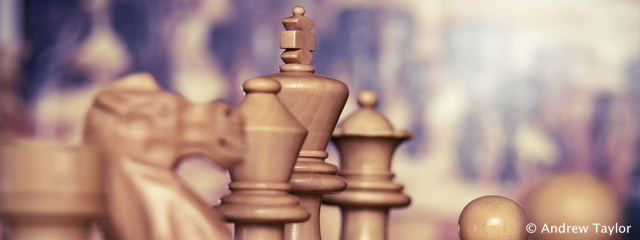EMERGING MARKETS: Navigating a clash between corporate governance and local customs CHALLENGE A multinational company operating in emerging markets discovered an individual who had access to the company float was taking money out of the company but replacing it...
GET THE MOST OUT OF YOUR BOARD

While internal boardroom politics are the bane of many an executive’s existence, getting your board members working in the same direction can be a vital step towards a successful CEO tenure.
Corporate governance has brought with it greater scrutiny of the board, its role, its composition and its effectiveness, and we are ever more aware of the importance of independence and ethical guidelines. And when one looks at the composition of several boards, there are general rules of thumb that are followed. But looking across a number of organisations, it can be seen that although some companies’ boards have the “right” mix in terms of backgrounds and skills of the individual directors, some have more of an impact than others.
So, if it is not structure, what is it that makes a good board? Research documented in the Harvard Business Review stresses that the key ingredient is the social element as opposed to the structure per se.
Just as the chemistry in a well-functioning, successful team cannot be quantified, it nonetheless is a key, determining component that is present in effective boards.
There are five key elements that can help a CEO foster the optimum environment in which the board, and each member within it, performs at their best: creating a climate of trust and candour; fostering a culture of open dissent; harnessing the mix of different roles; ensuring individual accountability and performance evaluation.
Climate of trust
Creating a climate of trust and candour is a virtuous cycle whereby board members develop mutual respect, therefore developing trust, and hence enabling the sharing of difficult information. The CEO needs to be transparent and open in information sharing, providing documents with ample time for them to be read and digested. This will enable all members to have the same level of information and so allow for more balanced discussion and a better- informed decision process.
The CEO should also give board members free access to people who can answer their questions, such as creating opportunities to meet key company personnel and inspecting company sites. Encouraging different board members to engage in this kind of activity and spending time together creates more unity and minimises the exposure or risk of factions. Providing free access to information and key personnel also eliminates the need and/or desire of individual members to create “back access” to information leading to them breaking away from the team and creating possible factions.
Open culture
In an environment of trust and mutual respect, healthy debate is encouraged where assumptions are challenged. This ensures issues are thoroughly discussed and each member has the opportunity to voice his viewpoint.
The CEO should not punish or discourage rebels or nonconformists, but instead use the opportunity to learn. It is through these interactions that people’s perspectives are challenged and horizons expanded. The CEO should leverage the knowledge and wisdom of the members of the board. Having a thorough understanding of members’ positions and their justifications opens opportunities to new conclusions and stronger decisions.
Research conducted by Eisenhardt and Bourgeois, found that the highest-performing companies have extremely contentious boards and regard dissent as an obligation, treating no subject as a taboo topic.
Roleplay
CEOs, along with other board members, should encourage members to play a variety of roles thereby giving them a wider perspective of the business. Viewing a scenario from a different perspective and developing alternative scenarios to evaluate strategic decisions not only broadens the number of possibilities and opportunities but also inhibits members developing a rigid point of view. Hence, members should be encouraged to play devil’s advocate, at other times delve into the details of the business and also be given the opportunity to act as the project manager. A case that demonstrates the impact this can have on a business was at Pepsico in 1997 when the board decided to sell the various components of its well-run restaurant group.
CEO Roger Enrico had previously turned around the unit which had been the brainchild of two of Enrico’s predecessors and must have had great pride in the division. Yet, he eventually convinced all that the restaurant unit should be sold and so that it could flourish freely beyond the controls of the parent company. It proved to be a brilliant idea.
Accountability
Ensuring accountability is probably one of the toughest challenges a CEO faces. In a survey conducted by the Yale School of Management and the Gallup Organisation, 25% of CEOs claimed that their board members did not appreciate the complexity of the businesses they oversaw. In recent history we have seen cases of individuals blaming others, proclaiming ignorance, Enron being a case in point.
Directors should take their duties seriously and encourage others to do the same, setting the tone for acceptable behaviour and performance.
Behaviour breeds behaviour and although the CEO and chairman of the board can assign tasks to get individuals fully engaged, peer pressure will play a major influencing factor in further enforcing positive behaviour.
Tasks can take on various formats and could involve collecting external data, meeting with customers, anonymously visiting plants and stores in the field and cultivating links to outside parties critical to the company. The exercise will then require members to impart knowledge and findings to the rest of the board and allows them to become better versed in strategic and operational issues the company faces.
GE’s board members for instance, dine with the company’s largest suppliers and distributors the night before the annual meeting while Home Depot’s board members are expected to visit at least eight stores outside their home state between board meetings.
Evaluate performance
Not giving feedback to a team is self-destructive as there can be no learning without feedback. Findings from a combination of research and surveys show that directors rate their board’s effectiveness significantly more positively at companies where individual members are evaluated. Although, when individuals are in an interdependent group such as on a board, it is better to conduct a formal evaluation on the performance of the overall group rather than its individual members.
One reason for this may be that, as it currently stands, board members are typically replaced for performance reasons only in extreme circumstances (e.g., criminal misconduct, conflict of interest, active disruption, very poor attendance/participation record) – and if they are replaced, they are rarely given an early warning and a chance to improve. In most cases, boards wait for under-performing directors to retire, a more reactive than proactive approach. Since the Board is in effect a high-level team, no matter how good it is, it is bound to get better if there is an evaluation process in place.
A good first step in director evaluation is to have directors assess only themselves. After two or three years, a peer assessment can be introduced, with directors evaluating one another. A simple pass/fail along several dimensions will ensure that the process is not too time consuming. The evaluations can be handed over to a trusted board advisor, such as outside legal counsel, who summarises the findings and provides individuals with their results. A next step is for the assessments to be turned over to the committee charged with director nominations, so that under-performing directors can be identified and action taken. Overall, this is good way of identifying who is truly adding value to the organisation, as well as making performance expectations clear. In evaluating directors, ask yourself the following questions:
• Do they understand the company’s strategy and business?
• Do they keep up to date with issues and trends affecting the business?
• Are they willing to challenge management when necessary?
• Do they have special expertise that is important to the company?
• Do they have an appropriate level of involvement in CEO succession and assessment?
• Do they attend boardroom meetings and discussions?
• Are they readily available for committee meetings?
• Do they contribute to board and committee agendas?
• Are they well prepared for meetings and discussions?
• Do they actively participate and contribution to the committee and boardroom deliberations?
• Are they available outside meetings to advise management?
• Do they effectively inquire about major performance deficiencies?
Although there are guidelines in how to formulate a board, the attitude a CEO takes towards the board is key in the tone that is going to be set. If a board is to truly fulfill its purpose of monitoring performance, advising the CEO, and providing connections with a broader world, it must become a robust team. Its members need to be actively engaged in seeking the truth and challenge each other to broaden their perspectives and viewpoints. The CEO should work in collaboration with the Board and all its members as opposed to viewing it as an obstacle that needs to be managed. Adopting an approach of transparency, honesty and respect will go a long way to building and nurturing a strong team, and a robust and effective board.
















